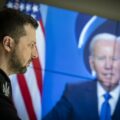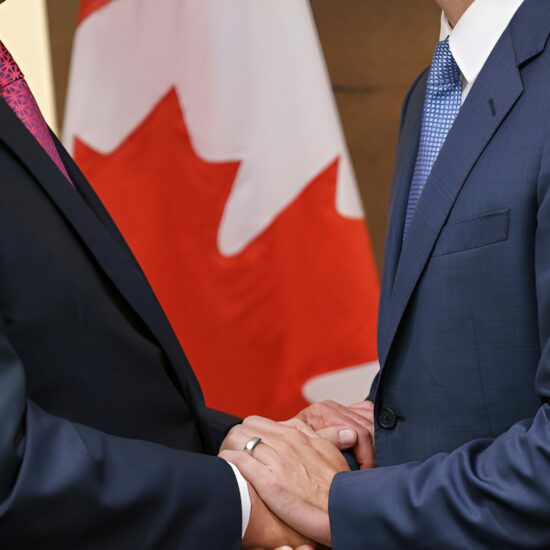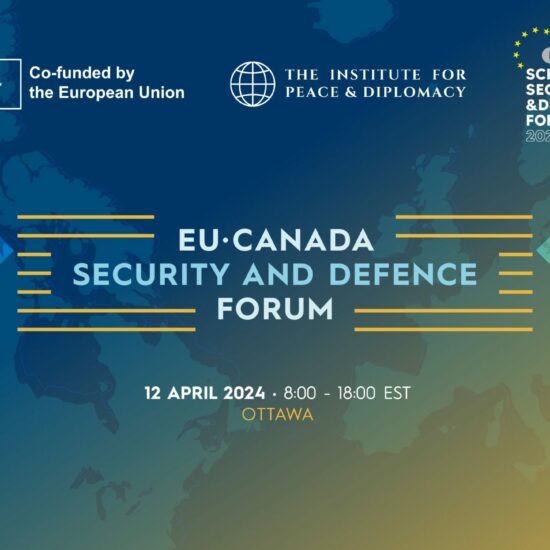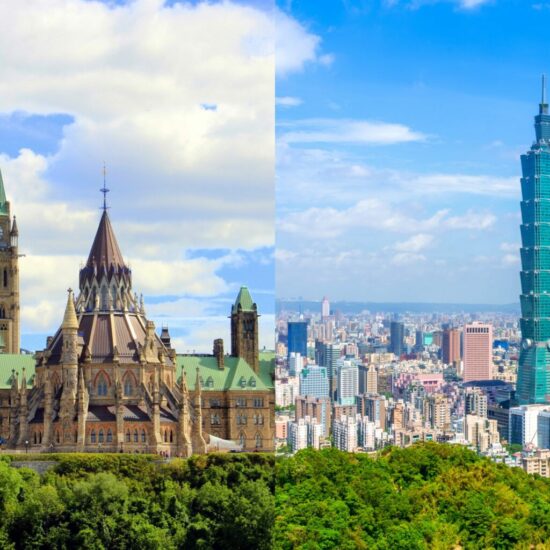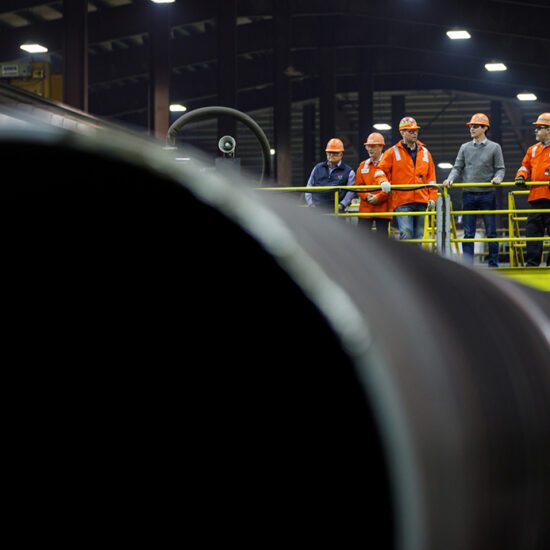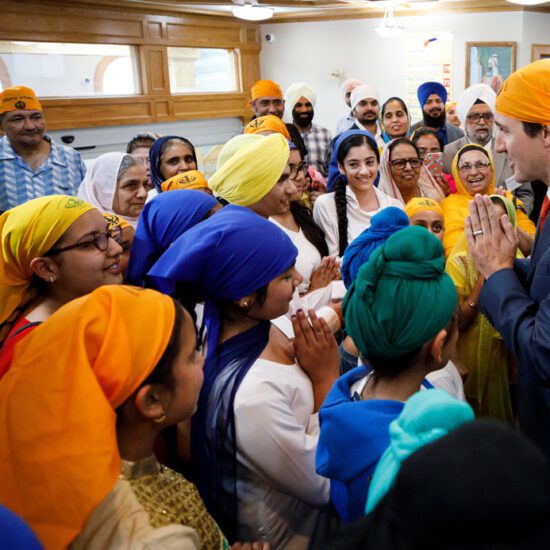
By Lisa Lalande
During the 1993 federal election, then-Progressive Conservative leader Kim Campbell famously remarked that a federal campaign is “not the time…to get involved in a debate on very, very serious issues.” While Ms. Campbell later claimed that her comment was taken out of context, there is an unfortunate grain of truth to what she said. Elections, unfortunately, have taken on an air of theatre, with much of our collective focus on the horse race of polls and the drama of campaign events, rather than on the details – and implications – of each party’s policy commitments. It is as though we have forgotten that their respective positions on any number of issues have an impact on our standard of living, our health and well being, our national security, and Canada’s standing in the world.
As we emerge from the pandemic, Canada is facing a series of crises that require urgent attention, from the obvious public health crisis to economic and education crises, as well as challenges to Canada’s international standing. I would add to that list a serious demographic crisis that few are taking seriously. Ms. Campbell’s comment aside, Canada can ill afford to ignore the opportunity this election presents to talk seriously about the size and growth of our population, and what that means for our long-term economic prosperity and international clout.
Simply put, Canada is at a crossroads. In the next 15 years, seniors are expected to make up approximately 25% of our population, and Statistics Canada estimates that by 2068, the number of dependents for every 100 Canadians of working age could be more than 70. At the same time, our fertility rate is dropping, with Stats Canada reporting that our birth rate is at its lowest in over 100 years due to Covid-19. Combined, these statistics point to a future in which Canada simply does not have the human resources, the tax base or the economic means to sustain the quality of life Canadians expect or advance our broader social, environmental and economic ambitions. Recognizing the problem our shifting demographics presents, Century Initiative has set a target of 100 million people in Canada by the year 2100. The specific number is less important than the need to set a bold target and then work toward it.
However, it will be a failure if Canada makes no concrete commitments, supported by a clear plan for achieving them, to grow our population aggressively and in a well-planned manner. The only way we can overcome this challenge and secure a more prosperous future is through a more disciplined, thoughtful approach to immigration. This won’t happen overnight. We need to build on Covid-period immigration levels annually; and we need to ensure newcomer success through the process of attracting, selecting, admitting, and settling immigrants.
Given the obvious need, and the opportunity a smart approach to immigration represents, why are we not hearing more about this on the campaign trail? There are a few possible reasons. The pandemic, for one, has focused our collective attention on the immediate need for a plan to facilitate our short-term social and economic recovery. Immigration can also be a polarizing issue, especially true in recent years with the rise of populist and nationalist movements.
However, even for the bulk of Canadians who do not hold xenophobic or nationalist views, the prospect of increased immigration can raise concerns linked to the country’s deepening housing affordability crisis, the availability of quality jobs, and environmental sustainability. The path of population growth through immigration must be designed specifically with a commitment to grow well, to building shared prosperity for those who already call Canada their home and those who will join us. If we fail to do this, it could potentially lead to political reaction and a reduction in immigration which we simply cannot afford to have happen.
And we should not focus only on the domestic impacts. Canada’s place in the world will also be influenced by the size of our population and, in turn, our economy. Not only does a larger population contribute to increasing Canada’s economic clout, it also contributes to a more diverse country, and it can help to fuel innovation and entrepreneurship. A decline in immigration will cut Canada off at its knees by limiting our economic growth, our potential and, ultimately, our voice on the world stage.
To be fair, the parties have not been completely silent on the topic of immigration. Each of the major federal parties has made campaign promises related to immigration, and each seems to recognize the important contribution immigrants make to our economy and to our social fabric. Immigration should not be a partisan issue. Surely, we can all agree that future generations of Canadians should experience the same quality of life we currently enjoy. We have a real and increasingly pressing need to get serious about our approach to ramping up the number of newcomers we attract to this country. That means we must move beyond vague, feel good campaign statements and focus on concrete actions, tied to measurable outcomes, to attract and retain the immigrants Canada needs.
Unfortunately, climate change may force us to focus more intently on the issue sooner rather than later. As the climate emergency makes vast tracts of the globe uninhabitable, Canada will need a strategy for how we will help the world respond to the needs of millions of climate migrants fleeing the impact of climate change in search of new homes and new opportunities. A forward-thinking country would be considering today how this new class of migrants can play a role in tomorrow’s economy. We would also seize the opportunity this looming crisis presents for Canada to demonstrate real leadership on what will almost certainly be one of the greatest threats and challenges to the global community.
If we start thinking now about how to integrate climate modeling and forecasts of climate migration into our domestic demographic and economic modeling, we have an opportunity not just to help respond to what will be a humanitarian crisis, but to turn that crisis into a social and economic positive for Canada. For instance, as our climate changes we may require new agricultural or irrigation techniques that are already being used in countries of the global south. Recognizing that means we can start planning today for how we might structure Canada’s response to tomorrow’s climate crises in a manner that is less reactive and more strategic, with our country’s long-term interests and moral responsibility at the forefront of our decisions.
Our need to think strategically and for the long term is becoming increasingly more imperative as the international context is shifting – and at a rapid pace. A stable, western, liberal-dominated order is not guaranteed. This means, Canada must learn how to better navigate uncertain global waters.
An aggressive and well-planned immigration approach can help us attract the best and the brightest talent from around the world. This can drive innovation, especially in those areas expected to be a primary focus over the next generation – from the transition to a cleaner, greener future, to addressing the digital divide, and more. It can help build a talent base that can raise Canada’s standing on the global stage. It will give Canada and our elected representatives a more forceful voice internationally, which can be helpful to Canada when it comes to addressing some of the world’s most significant challenges. By strengthening our position internationally, an immigration policy that fosters greater diversity may also help Canada to sidestep the rifts we are seeing, for example, between China and the US and give us a more independent voice. But first we need a strategy to build on the existing reasons that Canada remains such an attractive destination for immigrants and make sure we do not lose that advantage.
If we get this right, a bigger and bolder Canada will be in a better position to defend our economic and national security interests and preserve our values. We can be a counter to the growing forces of nationalism and populism. It means having greater control over our social and economic destiny. The most significant obstacle in the way of our achieving these goals, however, is our willingness to rise above political short-termism so that we can focus on our longer-term well being. There is no time like an election to debate what is for Canada one “very, very serious issue.”
Lisa Lalande (@LalandeLisa) is CEO of the Century Initiative. Lisa brings with her more than 20 years of proven experience in policy research and analysis, knowledge mobilization, change management, venture philanthropy, corporate social responsibility, and marketing communications. She previously held the position of Executive Director of the Mowat Centre’s Not-for-Profit Research Hub (Mowat NFP).

